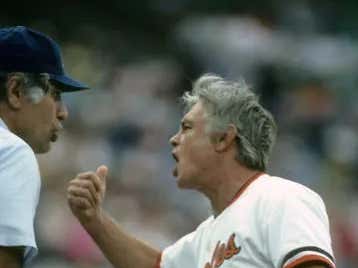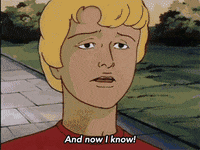
What Do Female Incels Really Want?
Online, groups of women have started using the rhetoric of the incel movement. But to what end?
“We were all ugly,” Amanda, a 22-year-old student from Florida told me, recalling the online community she found when she was 18. “Men didn’t like us, guys didn’t want to be with us, and it was fine to acknowledge it.”
This Reddit forum was called r/Trufemcels, and she commented there under the username “strangeanduglygrl.” Amanda didn’t post very often, but she checked in every day on the community of self-identified “femcels,” or involuntarily celibate women. (I agreed to refer to her by her first name only, to separate her current life from her former internet identity.) They came to complain about the superficiality of men and the privilege of pretty women, and to share their experiences moving through the world in an unattractive body, which therefore disadvantaged them romantically, socially, and economically. They were finding the modern dating landscape—the image-based apps, the commodified dating “market,” the illusory “freedom” to be found in hookup culture—to be unnavigable, and they talked about taking a “pink pill,” and opening their eyes to the reality that society was misogynistic and “lookist.” They could be funny—in 2019, a commenter repeated a pretty friend’s suggestion that nobody really needs to wear makeup, adding five heart-eye emoji and a link to the joke subreddit r/thanksimcured. They could be kind of mean—like male incels, they mocked lucky, beautiful women, whom they called “Stacys.” Mostly, they wrote about being sad. “Normies can’t comprehend real loneliness,” an early post begins. “Guys don’t treat ugly girls like people,” reads another.
“I was the kind of girl in school where it was like, people would say ‘Oh, he has a crush on you’ to make fun of the guy,” Amanda told me. She was anxious and unhappy, but she didn’t want to talk about any of it with her friends. When she first heard the term femcel, it offered some clarity. “In a very literal way: I was involuntarily celibate and female. So I was like, Okay, that applies.” Online, she found thousands of other women who were trying to figure out how to live without the kind of romantic love that our society has deemed a pillar—maybe the pillar—of happiness. “Even though the women in the [subreddit] were pretty depressed and sad, it did give me reassurance,” she said. “At least there are other people out there who are like me. And they weren’t completely weird. They were pretty normal.”
Around the same time that Amanda was getting involved in the femcel community, mass media attention was focused on its far-better-known male counterpart. The lonely and angry young men of the internet became a subject of fascination because their language was disgusting and their threats of violence against women were real—incels deified the murderer Elliot Rodger, who killed six people (and himself) in Isla Vista, California, in 2014 and left behind a YouTube video in which he outlined his plans to punish women for rejecting him. Coverage also illuminated the broader “Manosphere,” the sprawling online network of disaffected young men that overlapped with the so-called alt-right and with President Donald Trump’s rabid army of MAGA trolls. In a 2018 report on “the intersection of misogyny and white supremacy,” the Anti-Defamation League outlined how incels’ sense of entitlement to sex was leading them toward other extremist spaces and beliefs. This was a scary and dizzyingly complicated story, and femcels, whose rage was quieter and whose presence was smaller, didn’t really factor in.
Five years later, incels are a known quantity, and femcels are the new mystery. In recent months, headlines have named 2022 “the year of the ‘femcel’” and heralded a coming “femcel revolution,” wherein women are “reclaiming involuntary celibacy” and asserting their right to give a name to their loneliness and alienation. This new recognition of femcels has tended to stop there. But incel had political meaning—people who identified with the term were read as reactionaries, the young, mostly white men who felt left behind as society progressed beyond its historical focus on their specific needs. The term femcel is now in widespread use, not just in Reddit forums but on every major social platform, including the Gen Z–favored TikTok, but we still don’t know what it’s for. If a femcel revolution is coming, what new world are femcels dreaming about?
When Amanda talks about the femcel community, she specifically contrasts it with one other option: contemporary liberal feminism, or maybe “girlboss” feminism, as popularized by Millennials and the brands that cater to them.
“The liberal-feminist notion of like, supporting all women, feeling positive all the time … it’s disingenuous,” she told me. When she started identifying with the term femcel, it was partly because she felt a resentment toward a style of feminism that challenged traditional beauty standards mostly by asking those who fell short of them to feel beautiful anyway, regardless of their lived experiences. “I’d rather be able to talk about being ugly than just try to convince myself that I’m pretty,” she said.
In some ways, this logic is even more uncomfortable than the original incel logic. In a 2021 essay, the feminist theorist Jilly Boyce Kay argued that it’s not just incels who assume that “any woman can get sex from men.” This is a widespread cultural assumption. Women have long been understood to hold sexual capital; in modern dating culture, they’re expected to wield it. Femcels complicate that story. They feel the same sense of “humiliation and exclusion” that incels do, but they react to those feelings differently. “Incel discourse tends to project anger outward onto society in a hatred of women,” Kay told me when we spoke recently. That anger is expressed radically: through threats of violence, or through bizarre (though, arguably, imaginative) calls for the government to “redistribute” sex. “In femcel discourse, it does tend to be much more turned inward on the self,” she said. Though society is discussed as inherently “lookist” and unfair, femcels are not out to change it, because they don’t see it as changeable.
[cont]



